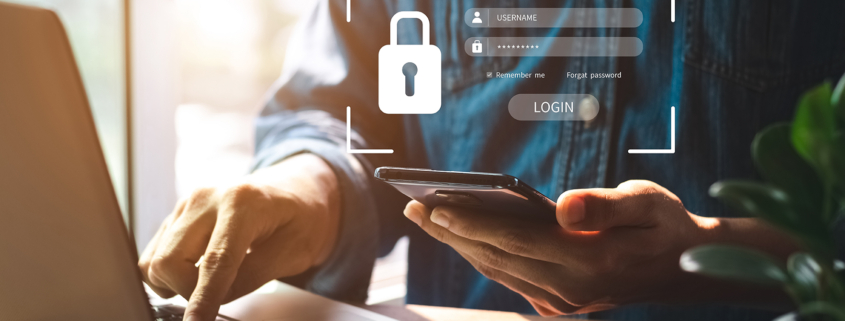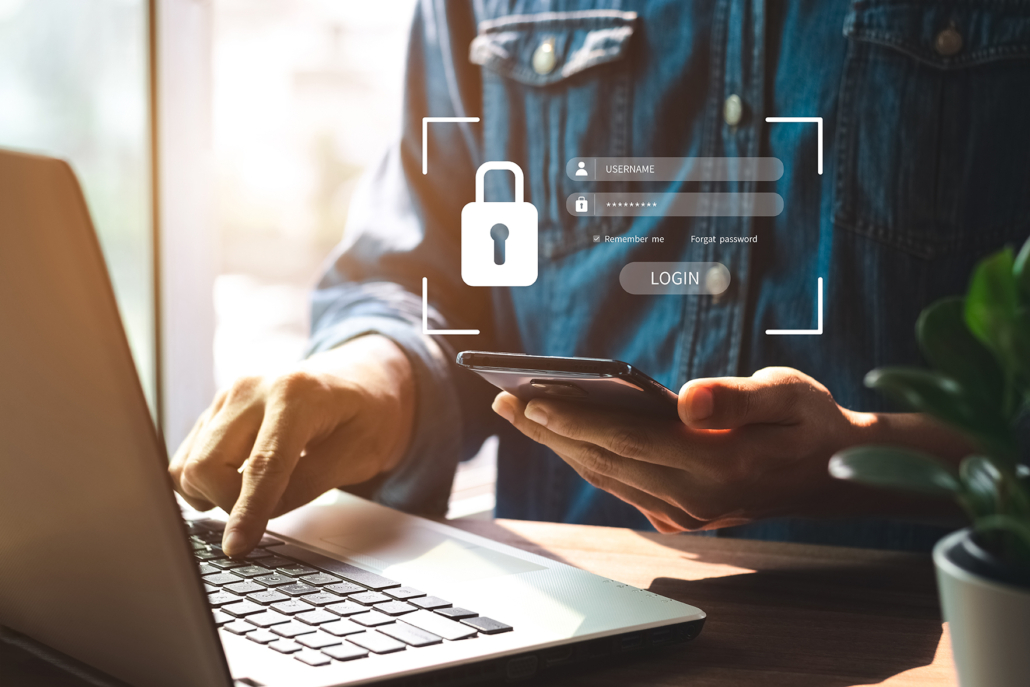Working Remotely? Protect Your Data With Cybersecurity Best Practices
The pandemic took working at home mainstream. If you work remotely, follow these cybersecurity best practices to protect your valuable data.
Thanks to the COVID-19 pandemic, remote working went mainstream. And not only for the duration of lockdowns. Working at home continues today as businesses experience the benefits to their employees and their bottom lines when they encourage remote working. And with so many technological advancements to support working from home, it’s never been easier for businesses to manage remote teams.
One of the challenges, however, is how to manage security to protect the data of both the business and the remote working employees. Fortunately, the advanced technologies we mentioned also address security issues. Here are some basic and easy-to-implement cybersecurity best practices to help protect valuable data.
Implement Antivirus Software
Antivirus security software should be one of the first tools you use from your cybersecurity best practices toolbox. It effectively fixes security weaknesses and helps to protect sensitive data. Antivirus software provides security against a range of dangers such as malware, ransomware attacks, spyware, phishing attacks, DDOS attacks, Trojans, and others.
Additionally, antivirus protection prevents malicious activities that can impact the performance of devices. Good software can detect and recognise viruses and remove them from your system. Consider it your handy digital security guard fending off malicious dangers. If you need some help finding the antivirus software for you, here is a brief list to get you started:
- McAfee
- Norton 360 Deluxe
- Bitdefender
- Kaspersky
- ESET
Encrypt all devices
Another cybersecurity best practices first step for remote employees is to encrypt – lock sensitive data, files, and devices using a secret PIN or code. This helps prevent unauthorized users from accessing your data through any of the devices on your network. Unless a user can produce a password, PIN, or biometrics (i.e. facial recognition), they can’t view, download, or modify files and documents.
Encryption is highly effective at mitigating digital interference and cyber-attacks. Ensure that your IT department communicates encryption methods, algorithms, and packages, with all remote employees.
Reevaluate passwords – make them strong!
The fact is, everyone should have strong passwords for every device and account, whether it’s work-related or not.
Strong, impenetrable passwords are the key to safeguarding your data. Your Wi-Fi router and network should be password protected along with devices and accounts. Choose your passwords and PINS wisely. Avoid those that a hacker might guess easily, such as birthdates, addresses, or common places. The more difficult the password, the less the likelihood of cracking it and accessing your devices or accounts.
Create strong, long passwords for every online account and your devices. You can analyze the strength of your password to ensure it can’t easily be hacked.
Set up a VPN
If a business employs several remote-working staff, it’s important that they use a virtual private network or VPN. Everyone should be connected to the organization’s VPN.
A VPN allows your team to access the internet safely by routing everyone’s connection through a server that conceals all online activities. A VPN keeps information and data secure and protected from hackers. It’s also a far more secure alternative to potentially insecure or untrustworthy Wi-Fi hotspots.
When you use a secure VPN, remote workers – employees, freelancers, and contractors – can protect sensitive data, their own as well as customers, from hackers and cybercriminals. Opt for secure VPN technology that encrypts your internet traffic, protects your devices on public hotspots and will keep internet providers from monitoring activity.
Use a single data storage location
For all your employees, contractors, and freelancers, be sure that everyone, including yourself and management, uses one centralized location to save and store documents and files. Cloud-based storage is wise to ensure sensitive data is safely stored and protected.
Moreover, when you store everything in one centralized location, it’s more efficient for everyone. Your remote working staff can control access, ownership, availability and security. For instance, Google Drive offers safe, secure storage in the cloud where workers can store, access, and control files and documents from a range of devices and locations.
Email cybersecurity best practices
With the increasing concerns around social media, businesses rely more and more on email, both externally and internally. Unfortunately, hackers and cybercriminals also know how to use email to their advantage. Phishing emails can include embedded links and attachments for you to click. While they might appear to be from a trusted source, these infected emails can install viruses on your computer and steal your passwords and other sensitive information.
When you work from home, follow these email best practices to protect your accounts and devices:
- Use a strong email password.
- Use two-factor authentication.
- Watch for “Phishing Emails”.
- Don’t click links or open attachments without scanning them first.
- Change your password occasionally.
Beware the Zoom bomb!
Alongside remote working came the teleconferencing boom! Helping to make working from home and staying connected to your teammates and colleagues, teleconferencing applications like Zoom made communication easier.
Of course, with popularity comes an increased potential for online attacks – the Zoom bomb. Zoom bombing is when your video conference is crashed by the interference of pornography or other vulgar content – bombarding public video conferences. To avoid the Zoom bomb, don’t post meeting links or meeting IDs on public forums or social media.
To avoid or eliminate the chances of a Zoom bomb, use password protection and limit screen sharing capabilities. Ensure meetings are private. Control guest access from a waiting room. Zoom lets the host determine what participants can do in their meetings.
Questions about your home insurance policy and cybercrime? Talk to us!
Working Ventures Insurance is British Columbia’s top insurance broker with a speciality in group and union member insurance. If you are a union member in BC, we can get you the best rates on your insurance.


